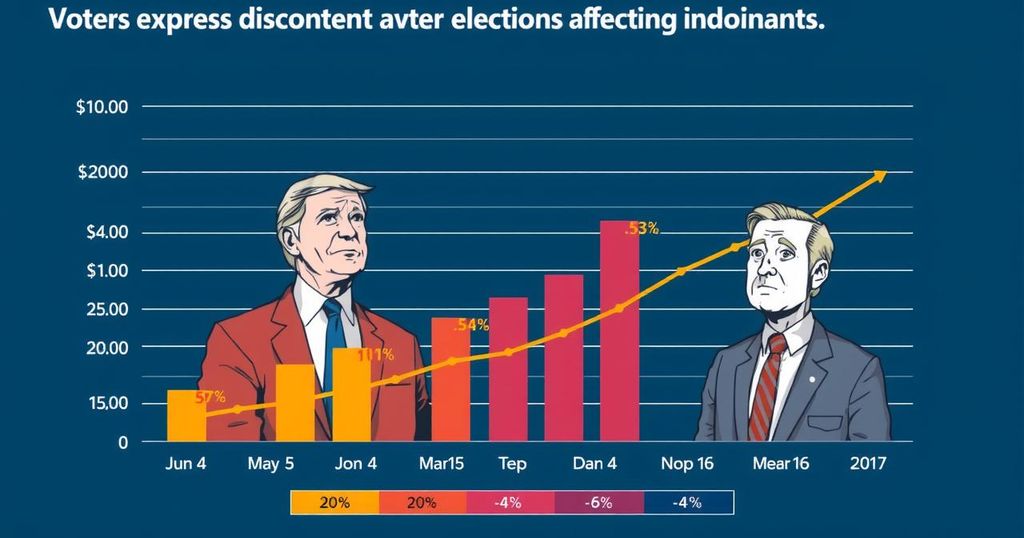World news
AFRICA, ANDRES MANUEL LÓPEZ OBRADOR, AP, BOTSWANA, CLAUDIA SHEINBAUM, CONSERVATIVE PARTY, DEMOCRACY, ELECTION, EUGENE HOSHIKO, EUROPE, FRANCE, GOVERNMENT, KIN CHEUNG, MARKUS SCHREIBER, MEDIA COVERAGE, MOSIELELE, PARIS, POLITICS, SOCIAL DEMOCRATIC PARTY, SOUTH AFRICA
Maya Ramirez
0 Comments
Incumbents Face Historic Losses in Global Elections Amid Voter Discontent
In 2024, a wave of anti-incumbent sentiment has swept across global democracies, leading to significant electoral losses for sitting governments. Driving factors include soaring inflation, economic difficulties, and public dissatisfaction with leadership in the aftermath of the COVID-19 pandemic. Prominent examples include political shifts in the UK, France, Germany, South Africa, and Japan, reflecting a broader voter sentiment against established parties.
The recent trend of global elections has led to a notable pattern of incumbents facing significant losses across various democracies, a phenomenon dubbed the “super year” for elections. Voter discontent has manifested profoundly, influenced by economic challenges such as inflation and lingering effects from the COVID-19 pandemic. In 2024 alone, worsening sentiments towards political elites resulted in incumbents being ousted from power in numerous nations, as citizens express their frustrations over high living costs and inadequate governmental responses. This year witnessed incumbent parties struggling particularly in Western democracies, as evidenced by electoral defeats across the board. The dynamic is not limited to one region; indeed, discontent is a driving force worldwide, indicating a broader anti-incumbent sentiment that transcends ideological affiliations.
The 2024 election cycle has been marked by dramatic shifts in political power, with incumbent governments facing unprecedented voter backlash. This trend appears driven by a mixture of economic discontent and a general disillusionment with political elites, amplified further by the pandemic’s extensive societal impacts. Analysts have noted that since early 2020, as many as 40 out of 54 elections in Western democracies have ousted incumbents, highlighting a significant shift in voter behavior towards a punitive approach against sitting governments. Polls suggest a diminishing faith in the efficacy of democratic systems as inflation and economic distress continue to rise, consistently influencing electoral outcomes across continents.
The 2024 electoral landscape signifies a compelling shift away from incumbency, fueled by rising economic frustrations and a pervasive sense of neglect from political elites. The overarching narrative is one of discontent that spans various nations and ideologies, suggesting that voters are increasingly willing to hold leaders accountable regardless of party affiliation. This trend invites a reevaluation of long-standing political dynamics and raises questions about the sustainability of governmental authority amid an increasingly disenchanted electorate.
Original Source: apnews.com




Post Comment